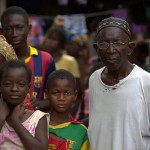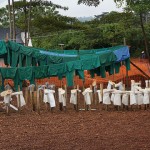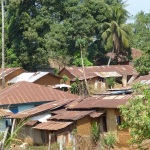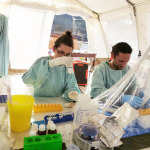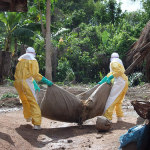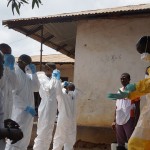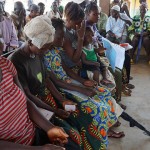Some of the UK’s leading aid agencies’ prevention work, such as safe burials and awareness raising, in response to the Ebola epidemic in Sierra Leone is “impressive” but must continue to adapt to the changing situation in West Africa, an independent review of the DEC response said today. The Ebola crisis appeal response review conducted in March 2015 by the Institute of Development Studies for the DEC found that member agencies utilised their existing networks and relationships in Sierra Leone to scale up programmes after
Continue reading →
This is the review of the Ebola Crisis Appeal Response in Sierra Leone of the Disasters Emergency Committee (DEC) that unites 13 of the largest UK humanitarian charities to raise funds in response to major international humanitarian crises. The review team consisted of an external team leader, a DEC member representative and the DEC chief executive with complementary roles and expertise. Fieldwork took place from 8th to 18th February. The team visited Freetown and Western Area, Port Loko Bombali, and Tonkolili. They used semi-structured questionnaires to
Continue reading →
It took the threat of a global health crisis to illustrate the failings of Africa’s health systems. Resilient health systems, free at the point of use, are evidently a global public good. They are essential for the provision of universal health coverage and for a prompt response to outbreaks of disease. Resilient health systems require long-term investment in the six key elements that are required for a resilient system: an adequate numbers of trained health workers; available medicines; robust health information systems, including surveillance; appropriate
Continue reading →
This issue of Limn on “Ebola’s Ecologies” examines how the 2014 Ebola outbreak has put the norms, practices, and institutional logics of global health into question, and examines the new assemblages that are being forged in its wake. The contributions focus on various domains of thought and practice that have been implicated in the current outbreak, posing questions such as: What has been learned about the ambitions and the limits of humanitarian medical response? What insights are emerging concerning the contemporary organization of global health
Continue reading →
This working paper reports on a study to identify epidemic control priorities among 15 communities in Monrovia and Montserrado County, Liberia. Data were collected in September 2014 on the following topics: prevention, surveillance, care-giving, community-based treatment and support, networking/hotlines/calling response teams and referrals, management of corpses, quarantine and isolation, orphans, memorialization, and the need for community-based training and education. The study also reviewed issues of fear and stigma towards Ebola victims and survivors, and support for those who have been affected by Ebola. The findings
Continue reading →
On the 5th of September, 2014, the blog Konakry Express recounted a report from Mme Fatou Baldé Yansané that there are severe shortages of gloves in health facilities in Guinea. Mme Baldé Yansané writes that midwives have only one or two pair of gloves each week. As a consequence, they have to reuse gloves or merely rub their hands with chlorine after consultations. This message was written over five months after the WHO’s confirmation of an Ebola outbreak in Guinea on their webpage. When I read the blog
Continue reading →
Christopher J. M. Whitty and colleagues explain why the United Kingdom is funding many small community centres to isolate suspected cases in Sierra Leone. The UK government is leading the international response to Ebola in Sierra Leone, providing technical, financial and logistical help. This article sets out the scientific basis for the UK government’s strategy to assist Sierra Leone’s government to reduce transmission. In addition to substantially scaling up conventional capacities at hospitals, the UK plan to help to build and support community isolation centres where
Continue reading →
This brief summarises some key considerations about food insecurity, the migration of men and youth for work and the implication these movements may have for the Ebola response. The details have been collated from suggestions and insights provided by networks of anthropologists* who work Liberia, Sierra Leone and Guinea (both in-‐country and remotely). These are general considerations that are broadly relevant to the movement of people during the dry season, but further investigation into local specificities is required. The French version of the report is
Continue reading →
